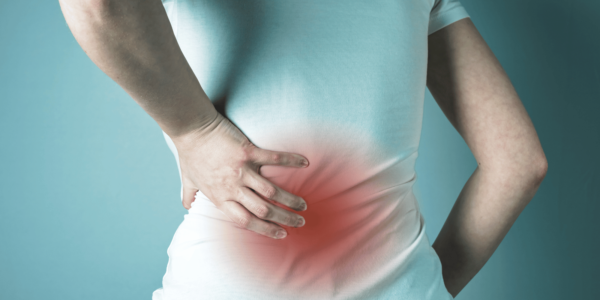BACK PAIN

It is crucial to understand that self-diagnosing back pain can be challenging and unreliable without the guidance of a medical professional and a thorough physical examination. However, at St Giles Physiotherapy & Sports Injury Clinic, we have extensive experience in treating a range of back injuries, which may include but are not limited to:
- Sciatica
- Disc herniations/bulges
- Lower back pain
- Upper back and neck pain
- Spondylolisthesis
- Poor posture
- Degenerative disc disease
- Sacroiliac joint syndrome
For accurate diagnosis and a personalised treatment plan for your back pain, we suggest scheduling a consultation with one of our experienced physiotherapists.
Back pain is a prevalent condition that affects a significant number of people. The causes of back pain can vary and may include:
- Poor posture: sitting or standing with incorrect posture for prolonged periods can strain the muscles of the back and lead to pain.
- Lack of physical activity: a sedentary lifestyle without regular exercise can result in weakened muscles, including those in the back, making them more vulnerable to injury.
- Overuse or misuse of muscles: engaging in activities like heavy lifting or repetitive movements can cause strain on the back muscles and result in pain.
- Age-related changes: as we age, the spine undergoes degenerative changes that can cause conditions such as osteoarthritis or spinal stenosis, which can lead to back pain.
- Herniated or bulging discs: when the discs that cushion the vertebrae in the spine become damaged or degenerate, they can bulge or herniate, causing pressure on the nerves and resulting in pain.
- Trauma: a direct impact to the back or a fall can cause injury to the spine or surrounding muscles and tissues, leading to pain.
- Medical conditions: certain medical conditions like osteoporosis, fibromyalgia, or scoliosis can also cause back pain.
In general, back pain can be categoriSed into three groups: muscular, neurological, and mechanical.
- Muscular pain is typically characterised by a dull, localised ache in specific areas of the back and is often caused by overuse or misuse of certain muscle groups.
- Neurological pain is associated with symptoms such as radiating pain, numbness, and tingling sensations due to pressure on the intervertebral discs and spinal nerves.
- Mechanical pain is a combination of symptoms and can be a precursor to muscular and neurological back problems.
To properly address your back pain, it is essential to consult with a medical professional to identify the root cause and create a suitable treatment plan.
What can you do at home to relieve your symptoms?
- To enhance flexibility and ease tension in the affected area, engage in gentle stretching and mobility exercises. Before starting any new exercise routine, it's important to consult with a professional or physiotherapist.
- You may also want to consider utilising a foam roller or massage ball to specifically target and release tight muscles in the back and surrounding areas.
- Managing stress through techniques such as deep breathing, meditation, or yoga can also be helpful in reducing back pain. Additionally, maintaining a healthy weight and avoiding smoking can lower the risk of experiencing back pain.
- A comfortable and supportive mattress and pillow can make a significant difference in reducing back pain.
- If your job requires prolonged sitting, be sure to take frequent breaks and move around regularly to prevent extended periods of inactivity.
- Medical conditions: certain medical conditions like osteoporosis, fibromyalgia, or scoliosis can also cause back pain.
- If your job requires prolonged sitting, be sure to take frequent breaks and move around regularly to prevent extended periods of inactivity.
What are the ways in which we can assist you with your back pain?
St Giles Physiotherapy & Sports Injury Clinic offers advanced treatment technology and exercise rehabilitation to effectively address your back pain. Following a comprehensive initial consultation, we utilise a combination of laser therapy, shockwave therapy, spinal decompression therapy, EMS therapy, and exercise rehabilitation to minimise your pain and inflammation and enhance your body’s natural healing mechanisms. Our non-surgical treatments boast a success rate exceeding 95%. To book an appointment with one of our skilled back practitioners, kindly click on the link below and select a convenient time.
